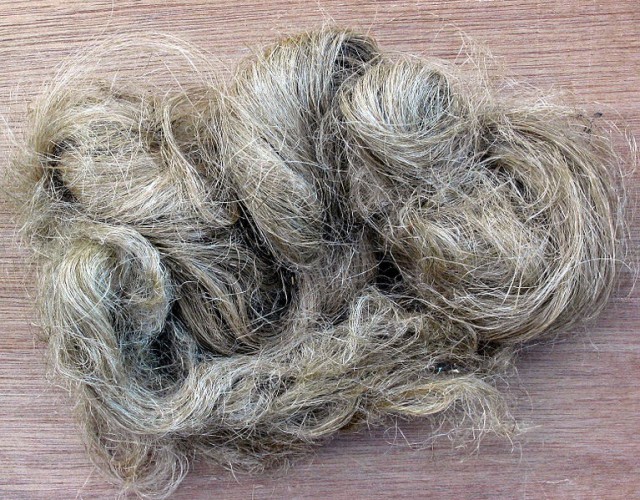
Come Senators, Congressmen, please heed the call
Don’t stand in the doorway, don’t block up the hall
For he who is hurt will be he who has stalled
I thought about those lines and that almost-50-year-old Bob Dylan song while watching the debate over an amendment Rep. Jared Polis, D-Boulder, proposed to the Federal Agriculture Reform and Risk Management Act of 2013 (FARRM) bill last week in the U.S. House of Representatives. If you’re interested in the ways and means of federal policy-making, it’s 10 minutes well worth watching. If it weren’t showing the leaders who make major decisions in our country, it would be much funnier.
Polis’ modest, bi-partisan amendment, which would allow universities under restrictive conditions to grow and study hemp for agricultural or academic research (one school he mentioned was Colorado State University in Fort Collins), was offered with a little show-and-tell — he held up an American flag made of hemp while mentioning that Thomas Jefferson and George Washington both grew the crop. Spending on hemp-related products is more than $300 million a year, he said, and almost all of the 25,000 hemp-related products sold here use hemp imported from other countries.
But he quickly got to the point. “At the THC levels specified,” Polis said, “it’s physically impossible to use hemp as a drug.” And he repeated himself while proposing rather sensibly that hemp is an agricultural commodity, not a drug.
Rep. Steve King, R-Iowa objected, mentioning that he was aware of situations where industrial hemp operations could hide marijuana plants among the hemp to avoid detection by the Drug Enforcement Agency, which also endorsed this point of view at the hearings.
Here’s what he’s really talking about: The DEA mostly watches for illegal marijuana grows by air, and even our best drones and snooping equipment can’t seem to be able to tell the difference between hemp and marijuana, so what can the government do to keep industrial hemp growers from hiding a little cheeba on the side?
For one, they could stop worrying about it. Beyond a couple of second-hand accounts from groups opposed to legalization, I could find no evidence to support this contention.
On the other hand, there are plenty of studies that say this is just false. For instance, King’s own Agricultural Committee released “Hemp as an Agricultural Commodity” in March of this year, a tract that offers several reasons why nobody with any sense would want to plant marijuana and hemp together.
Among the findings: 1) Cannabis plants grown for fiber or oil are different from plants grown for medicinal/recreational products. 2) Each has its own methods of growing. 3) Neither are planted or harvested at the same time. 4) Most importantly, all cannabis plants are wind- or insect-pollinated, and thus subject to cross-pollination.
“This is particularly true for growers of medicinal or recreational marijuana, in an effort to avoid crosspollination with industrial hemp,” the report says, “which would significantly lower the THC content and thus degrade the value of the marijuana crop.”
Perhaps the funniest moment in the Polis-King debate comes after King’s dissension, when Rep. Collin Peterson, D-Minn., explains that researchers from the University of North Dakota have been able to put a fluorescent gene into hemp, which, if added to all American hemp crops, could solve the DEA’s identification problem. And, he added, though he doesn’t know anything about marijuana, he’s heard that if you mix hemp and marijuana, it ruins the marijuana. I couldn’t find any other mention of that gene splicing, but perhaps Peterson actually reads government reports, and let’s hope he follows through on sharing that information with King and his staff, as well as that Ag Committee report, too.
As we point out again and again in this space, there is no shortage of stupidity when it comes to the federal battle against marijuana. But one of the most ridiculous was when hemp, which as Polis mentioned had been grown here without incident since the country was founded, fell victim to the Marijuana Tax Act of 1937. Though the act didn’t outlaw hemp, it regulated a stiff enough tax on it to dissuade anyone from growing it.
Except for a period several years later when the federal government, in need of fiber and seed oil, encouraged farmers (including in King’s state of Iowa) to grow hemp to help the war effort, using a propaganda film called “Hemp for Victory.” When the war ended, so did U.S. support for hemp, and in 1970, when Congress passed the Controlled Substances Act, it became illegal. Though it’s a scientific fact that hemp and marijuana are different, the DEA officially continues to consider hemp a dangerous drug. Today the U.S. imports more hemp than any other country.
The tide is turning. More than 30 states have introduced hemp legislation. Colorado, Vermont and North Dakota have passed laws enabling farmers to grow hemp, and 10 other states allow hemp farming but have not started production yet because of continuing DEA resistance.
But here’s the punch line: Polis joined a bi-partisan effort to vote against the FARRM Act, killing the hemp-study proposal.
Respond to [email protected].
What do you want to know about legal marijuana in Colorado? Send tips, suggestions or criticisms to [email protected].














